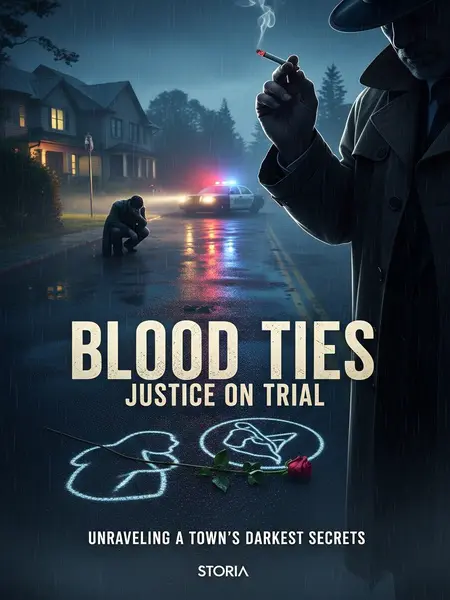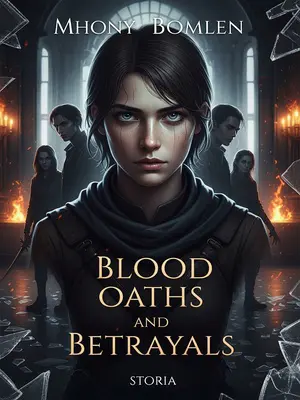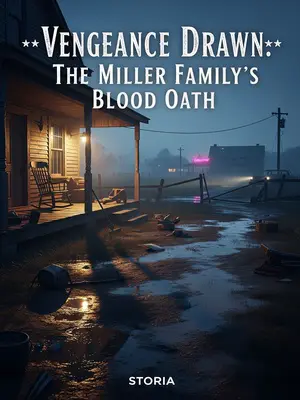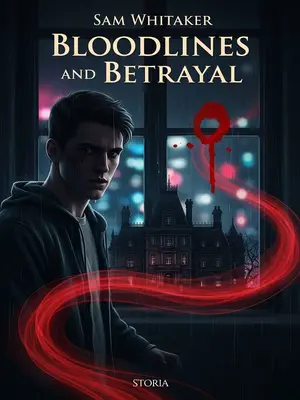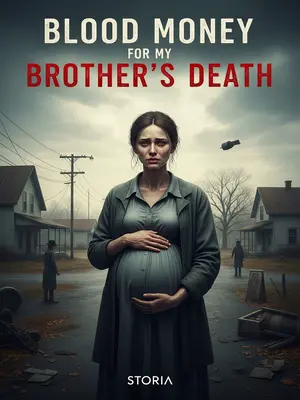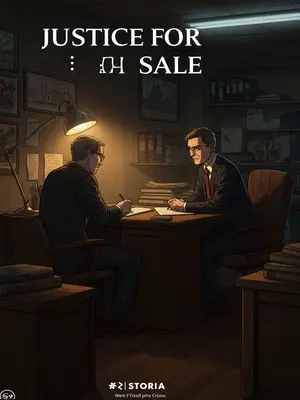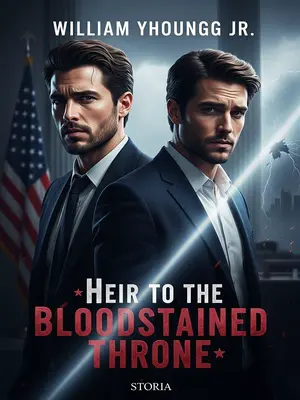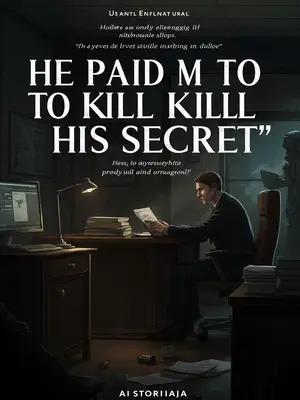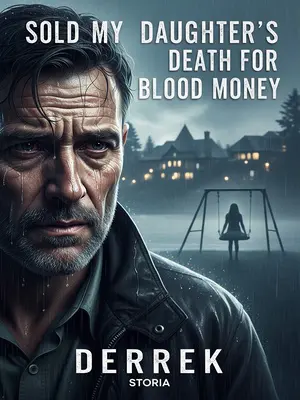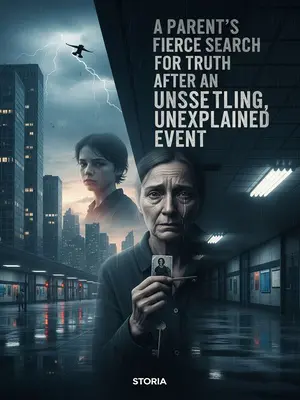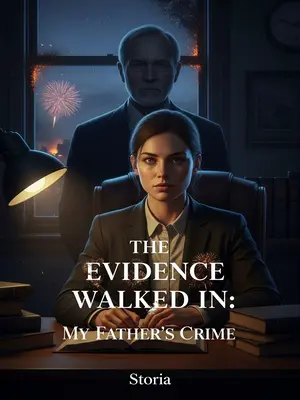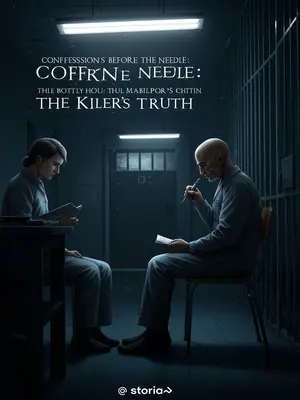Chapter 5: The Price of Innocence
She was blunt, no-nonsense. "He’s done. No jury in the world will let him walk."
Everything was wrapped up in one night.
The sun was rising by the time we finished. We stood outside the station, coffee in hand, watching the sky turn pink. There was a sense of grim satisfaction—we’d done our jobs, and done them well.
We all knew that by morning, Charles Whitman would take action.
It was only a matter of time. Charles was a man who didn’t take no for an answer. We braced ourselves for what was coming.
Our caution was justified.
The phone started ringing before we’d even finished breakfast. Harris answered, voice clipped. "Yes, sir. No, sir. The investigation is ongoing."
We also discovered that Tyler had a prior criminal history that had not led to prosecution.
It was buried in the paperwork, but Monica found it—a sealed juvenile record, a car accident in another city. The details were vague, but the implications were clear.
As mentioned, Tyler was already nineteen—he should have graduated from high school by now. The reason he hadn’t was that he’d dropped out for over two years, gone to another city, and was later brought back by his father to finish school. Maybe the plan was to have him graduate and then be sent abroad, so he returned to this small county.
It was the kind of thing rich families did—move their troubled kids around, try to give them a fresh start somewhere new. But trouble always seemed to follow.
The reason for his return was a car accident.
It was a bad one—multiple cars, people hurt. Tyler had been driving, underage, maybe even drinking. The details were sketchy, but the outcome was clear: no charges filed.
Since it happened in another city and there was no criminal case on file, we couldn’t access the full records. But we could find a brief description of the incident and its outcome.
The report was just a few lines—names redacted, details vague. But it was enough to raise red flags.
Because he was under eighteen at the time, he was not prosecuted.
The law was clear—minors got a second chance. But it was hard not to wonder how much money had changed hands. To make the whole thing go away.
But the accident had resulted in casualties.
People had been hurt—maybe even killed. The report didn’t say, but the whispers in the department were enough.
Normally, such a serious accident would meet the threshold for criminal prosecution under state law—punishable by up to three years’ imprisonment or detention. For minors, only lighter or reduced sentences apply, but to not prosecute at all seemed suspicious—clearly a result of money and influence.
It was the oldest story in America—money talks. Justice walks. Harris shook his head, muttering under his breath.
The file noted that after the accident, Tyler rendered aid, turned himself in, offered compensation, and obtained the victims’ forgiveness, and so on.
It was all by the book—at least on paper. But we all knew what really happened. Charles Whitman had bought his son’s freedom, and now, here we were again.
It was clear how much money Charles Whitman had spent to settle the matter.
Rumor had it he’d paid off everyone. The victims’ families. The DA. It was enough to make you sick.
This was why we worked through the night—why even Captain Harris feared the power of money.
We knew that if we didn’t get everything locked down before dawn, the case might disappear, just like Tyler’s last one. No one wanted that on their conscience.
Sure enough, the next morning, we received inquiries from several influential figures outside the justice system, all from the city government.
The mayor’s office called. Then a city councilman. Then someone from the governor’s staff. They all asked the same questions—how was Tyler being treated, was he getting a fair shake, did he need a lawyer?
But our overnight efforts had ensured the evidence was irrefutable.
Harris stood his ground, repeating the facts, refusing to budge. The evidence was solid, the paperwork flawless. There was nothing anyone could do—at least for now.
There was no room for manipulation.
Every t was crossed. Every i dotted. Monica made sure of it, double-checking every file before it went to the DA.
But if things had gone as we hoped and Tyler had been sentenced to death, this case wouldn’t even be worth mentioning.
It would’ve been a tragic story, but at least justice would have been served. We could have moved on, closed the file, and maybe slept a little easier at night.
When the DNA results finally arrived, we breathed a sigh of relief.
The call came in late—Monica answered, then gave us a thumbs up. The DNA was a match. Tyler’s fate seemed sealed.
It matched the bodily fluids found on the victim—ironclad evidence that sealed the case.
There was no wiggle room, no technicalities. The science was clear, the chain of custody unbroken. We felt a sense of grim satisfaction.
Captain Harris and I went to the hospital to visit Michael Grady and take his statement.
The hospital was quiet, the halls dimly lit. Michael sat in a wheelchair by the window, staring out at the parking lot. He looked older, thinner, his eyes hollow.
After two days of medical care, his condition had stabilized, but his grief was still overwhelming.
He barely spoke. Answered questions in a monotone. But when we mentioned Lillian and Savannah, his eyes filled with tears. It was clear he was holding on by a thread.
The only thing keeping him going was the thought of seeing justice done—of seeing the murderer sentenced to death.
He said it quietly, but with conviction. "I just want to see him pay." He looked at us. "That’s all I have left."
After the formal interview, Michael told us more.
He asked us to stay a while, said he needed to talk. We pulled up chairs, listened as he poured out his heart.
With red eyes and gritted teeth, he spoke about his wife, his daughter, and their family.
He told us about their first date. Their wedding. The day Savannah was born. His voice broke as he described Lillian’s laugh, Savannah’s first steps. It was a portrait of a life interrupted.
He and Lillian had been college classmates, fallen in love, and overcome many obstacles to be together.
They’d met in a philosophy class, stayed up late arguing about books and movies. Their families hadn’t approved at first, but they’d fought for each other, built a life from scratch.
To him, Lillian was the most beautiful and caring woman in the world.
He described the way she’d dance in the kitchen, the way she’d sing to Savannah at bedtime. He said she made every day brighter, even the tough ones.
Savannah was heaven’s greatest gift—a little angel, the embodiment of their happiness.
He choked up as he talked about her giggle. The way she’d reach for his finger. The soft curls at the nape of her neck. She was everything to him.
...
We sat in silence for a long time, letting him talk, letting him grieve. Sometimes, the best thing you can do is just listen.
Captain Harris and I couldn’t bear to interrupt him.
We exchanged glances, both of us fighting back tears. It was one of those moments that reminded you why you do this job—to stand with people when they need it most.
He also told us that Charles Whitman had already hired a lawyer to approach him, offering a compensation of $150,000 in exchange for a letter of forgiveness.
The offer was delivered by a man in an expensive suit, briefcase in hand. He spoke in soft tones. Talked about closure. About moving on. But Michael saw right through it.
That was a huge sum in 2005.
It was more than Michael made in three years. But he didn’t hesitate—not for a second.
But Michael tore up the letter in anger and threw them out.
He shredded the paper, tossed it in the trash, and told the lawyer to get out. His voice shook, but his resolve was unbreakable.
When he finished, he broke down in tears.
He buried his face in his hands, shoulders shaking. We sat with him until he calmed down, unsure what else to do.
After a long silence, he asked us quietly:
“Will the murderer... be sentenced to death?”
His voice was barely audible. But the hope in it was unmistakable. It was the only thing he had left to cling to.
As investigators, we shouldn’t comment on the final judgment, since sentencing is the court’s responsibility. Nor should we promise anything to the victim’s family before trial—that would be improper.
We’d been trained to keep our answers neutral, to let the process play out. But sometimes, the rules feel too small. Too fragile for a moment like this.
But in that moment, even if it was a breach of protocol, I couldn’t help but say:
“The murderer will definitely pay with his life.”
I looked him in the eye as I said it, willing it to be true. Harris nodded, silent but resolute. It was a promise, one we intended to keep.
Upon hearing this, Michael nodded desperately, bowed his head, and sobbed.
His relief was palpable. His sobs quiet but deep. For the first time since the tragedy, he seemed to find a sliver of peace.
Afterward, we were even more determined to see the case through.
We doubled down, checking every detail, every piece of evidence. No one was going to derail this case—not on our watch.
Not long after, Prosecutor Evans informed us that the prosecution had been completed and the case filed with the court. There was little resistance.
Monica called to say the DA had signed off. The charges were filed. The trial date was set. It felt like the end was finally in sight.
It seemed the matter was settled.
We allowed ourselves a moment of relief, a rare thing in this line of work. Maybe, just maybe, justice would be done.
But unexpectedly, problems arose during the trial.
It started with a whisper—a rumor that the Whitman family had hired a team of high-powered lawyers from out of state. Then the delays began, motions filed, witnesses challenged. The wheels of justice started to grind slower and slower.
Most cases, especially with evidence this strong, moved quickly through the courts. But this one? Different. Every day brought a new surprise, a new obstacle.
This time, I truly witnessed how terrifying the power of money can be.
I’d always believed in the system, in the idea that justice was blind. But watching the Whitmans’ lawyers work the courtroom, seeing the way judges hesitated, the way jurors looked nervous—I realized just how far money could get you. It was a hard lesson, and one I’ll never forget.
